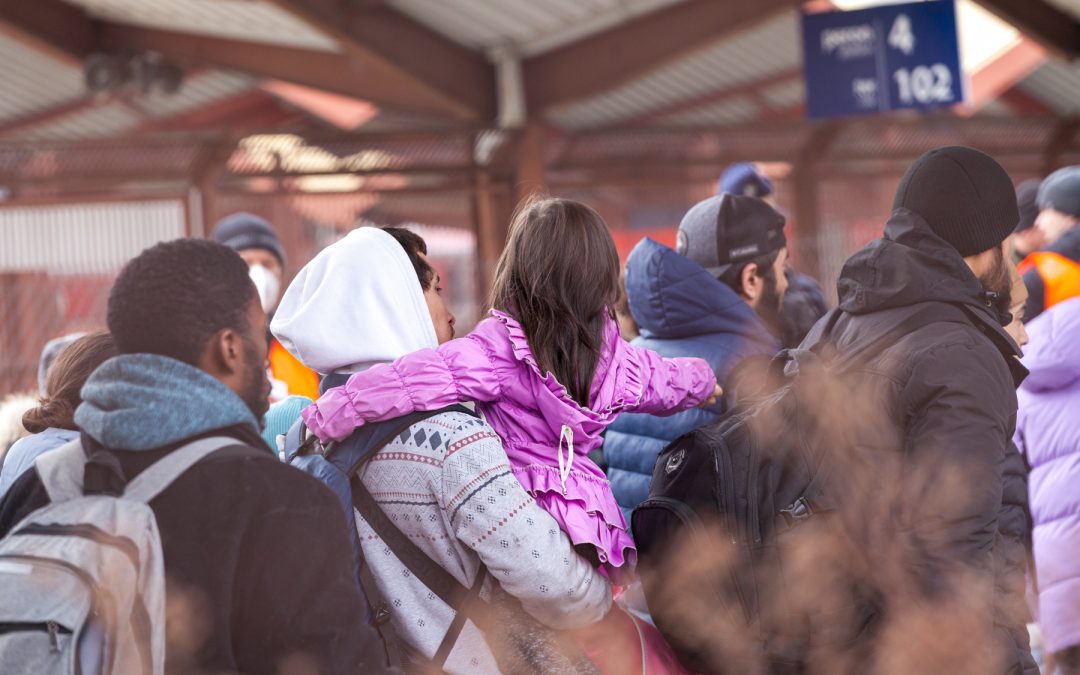The UN’s special rapporteur on the human rights of migrants has praised Poland for its efforts to protect and integrate Ukrainian refugees and applauded Polish citizens’ solidarity and generosity.
But he also criticised the country for “violating international law” by pushing back people – mostly from the Middle East, Asia and Africa – seeking to cross the border from Belarus and called for detained children to be moved out of closed migrant centres.
Felipe González Morales’s statement, which also warned of potential discrimination against some refugees, came at the end of a two-week long visit to Poland and Belarus during which he met with representatives of ministries, regional authorities and NGOs, spoke to migrants and visited detention facilities and border crossing points.
In a Press Conference today in concluding my visits to Poland and Belarus, I praise Poland for its generosity towards Ukrainian refugees and call Belarus and Poland to end the dangerous practice of pushbacks of migrants
See press release and final observations in the tweet below https://t.co/c9AsBLgQxM
— Felipe González Morales (@UNSR_Migration) July 28, 2022
“I am impressed by the government of Poland for providing significant support to a huge number of refugees fleeing Ukraine in such an intense period,” said González Morales. “At the same time, we must pay tribute to Polish citizens who have shown solidarity and generosity to Ukrainian refugees.”
He also praised the “clear and strong commitment made by the Polish authorities not to leave any Ukrainian without a roof over their heads”.
In the long term, however, he noted that the state needs realistic plans to ensure the delivery of the commitment, and called for “the sustainability of the current housing model” to be assessed, especially the role played by individual hosts.
“During winter, the housing situation could be affected by multifaceted challenges, including energy shortages, inflation, exhaustion or frustration of private hosts who have already sacrificed their private space for months,” González Morales warned.
The UN expert pointed to the shortcomings of the support system created for those fleeing the Russian invasion, noting that especially people in “irregular situations” such as undocumented migrants and those waiting for a final decision on their applications for international protection in Ukraine face greater difficulties in obtaining residence permits and proper shelter in Poland.
“This double standard approach has led to feelings of being discriminated among third-country nationals,” he wrote, but stressed that all refugees fleeing the war are admitted to Poland.
Referring to the situation on the Polish-Belarus border, the site of a major crisis beginning last summer when unprecedented numbers of people attempted to enter Polish territory with the help of Belarusian authorities, González Morales urged both countries to bring an end to the practice of pushbacks.
He expressed his deep concern about “the legislative framework that allows the systematic practice of pushbacks conducted by the Polish border guards including against women and children, in violation of international human rights law”.
After visiting guarded detention facilities for foreigners including the one in Lesznowla (where a hunger protest was staged in spring), González Morales called on Poland to move detained migrant children, those with their families, and pregnant women from closed immigration facilities to open centres.
The UN expert acknowledged the Polish border guard’s efforts to improve the conditions of stay of asylum seekers in closed facilities, but called on Poland to halt work on new immigration detention facilities currently being built.
He also noted that the numbers of lives lost on the border differ from the official figures – four deaths documented by Belarusian authorities and 10 investigated by the Polish ones. According to other public sources at least 19 migrants died in the forest in the border area.
The rapporteur also briefly visited the Belarusian side of the border and went to Minsk to speak to government officials and organisations providing humanitarian assistance to migrants at the border.
However, he was unable to speak to any “migrants who have attempted to cross the border with Poland” or to find a local Belarusian civil society organisation monitoring and reporting on the human rights situation of migrants.
He called on both Poland and Belarus to “grant full access to civil society and independent monitoring mechanisms to the border area”. The Polish government has faced criticism for imposing an exclusion zone around the border preventing NGOs and journalists from gaining access, although that was recently lifted.
Main image credit: Mirek Pruchnicki/Flickr (under CC BY 2.0)

Agnieszka Wądołowska is deputy editor-in-chief of Notes from Poland. She is a member of the European Press Prize’s preparatory committee. She was 2022 Fellow at the Entrepreneurial Journalism Creators Program at City University of New York. In 2024, she graduated from the Advanced Leadership Programme for Top Talents at the Center for Leadership. She has previously contributed to Gazeta Wyborcza, Wysokie Obcasy and Duży Format.




















